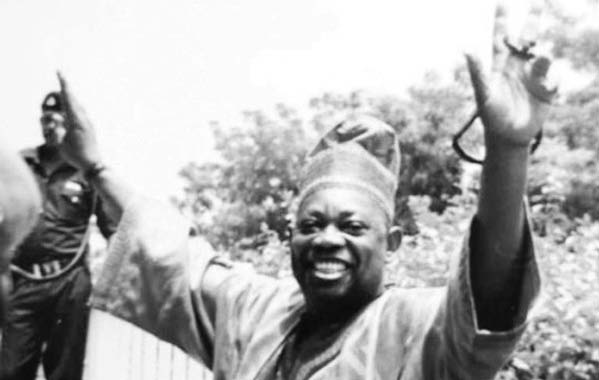Forgotten Dairies
The Persistent Memory of June 12: Who Is Afraid of a United Nigeria? -By Hafsat Abiola-Costello


We have arrived again at another anniversary of the June 12 Presidential Election of 1993, that event that laid bare the intent of the military dictator, General Ibrahim Badamosi Babangida, to subject Nigerians to an unending farce in the guise of seeking a credible national democratic election.
For a time, the points went to the military leadership who continued the musical chairs started in 1966. But the persistence of pro-democracy resistance was such that in the end, a coup against the movement had to be within the confines of civilian rule. As we bear witness to the reactions of certain parts of the country to the 2015 elections, the most promising since 1993, it shows us that what Nigeria lost in that singular opportunity where a country came together behind one man, we have yet to regain.
Perhaps at this juncture, we might want to ask ourselves, who is afraid of a united Nigeria? In the way that investigators ask, ‘who stands to gain from a murder’ when drawing the list of suspects. Not because of June 12 itself, but because the difficulty we currently face in pulling together is costing us dearly.
Recently, the minister for Power, Works and Housing said efforts to generate more power were hindered by the continued attacks of gas pipelines by the Niger Delta Avengers, a new militant group in the South-South region. Without power, there won’t be much in the way of economic development given that every industry depends on it. So it seems that the fallout of President Jonathan’s March 29, 2015 electoral loss is the rise of NDA; similar to the way the loss of political power in the North gave rise to Boko Haram. But are these splinter groups the natural outcome when the proliferation of small arms and light weapons meets the high proportion of unemployed, idle young people? Or is there an invisible hand disturbing the hornet’s nest?
Elections always produce winners and losers. In multi-ethnic countries like Nigeria though, where ethnic groups have been known to identify with candidates, it is difficult for certain parts of the country not to feel alienated by the results except when a candidate wins in every part of the country. This happened before, on June 12, 1993, thus giving us an unprecedented opportunity to work together to get to higher ground. That landmark poll was annulled for mysterious reasons and that opportunity was wasted. At the time, our attention was on the leadership of the military, on explanations centred on their unwillingness to lose their hold on power, their lack of patriotism, their greed. The annulment is now in the past. Here, in the present, we are back to the suboptimal situation we have faced since independence when crisis erupts in the region that is alienated, weakening the ability of the country to pull ahead. So what can we learn from June 12?
The Yoruba say that a child should not ask to know who killed his father unless he has been able to hold the sword that was used to kill him by the hilt. And if the question was merely about how an elected president died while in the custody of the military government on July 7, 1998, I would abide by the wisdom of the elders and not ask questions. But the fact that the people that find themselves in the territory called Nigeria will continue hustling to make ends meet under impossible odds should the prevailing situation (or arrangement?) continue, forces the question – who or what stands opposed to our coming together?
These continual interventions in our affairs are killing our chances of escaping poverty. If there is a cabal instigating these disruptions, however it is constituted, let them be warned: Nigerians also say, every day is for the thief, but one day is for the owner.
Hafsat Abiola-Costello, Founder and President of Kudirat Initiative for Democracy (KIND), is also Special Adviser to the Governor Ogun State on Trade and Investment.

















